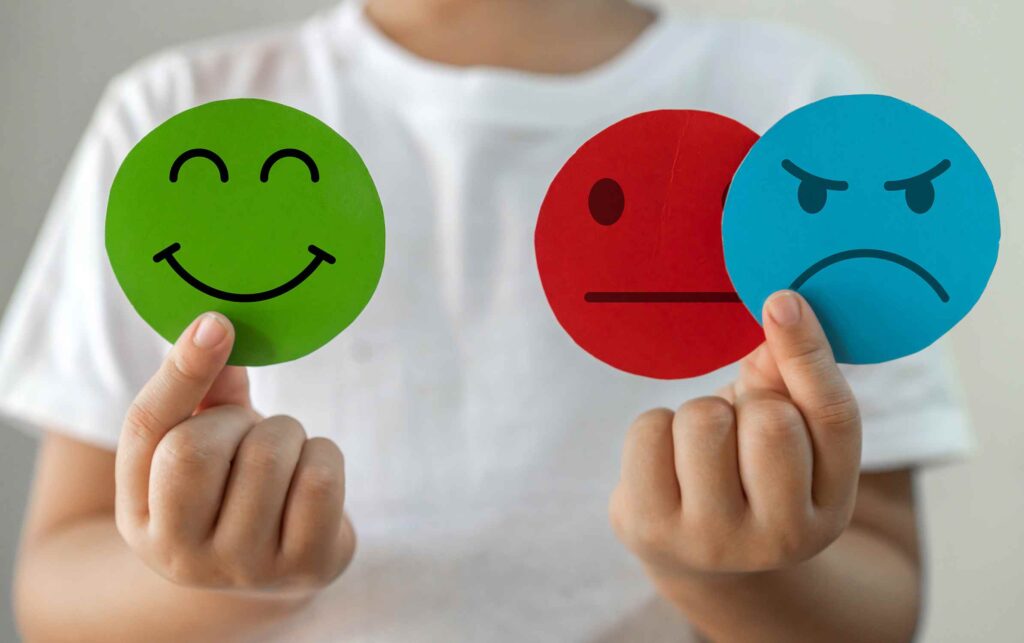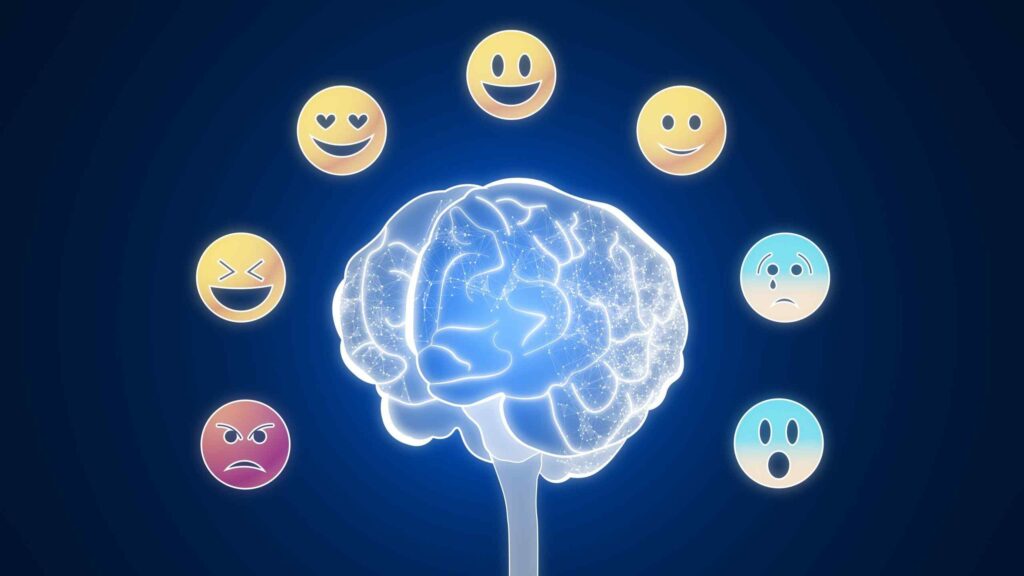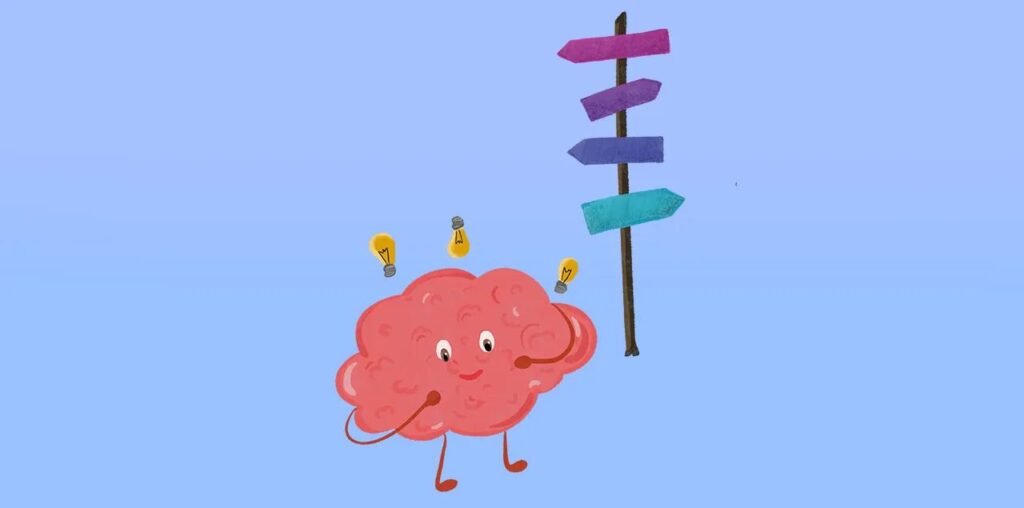Decision Making and Emotional Intelligence

Decision making is an intrinsic aspect of human life, influencing personal and professional spheres. It determines outcomes in various contexts, ranging from simple everyday choices to complex life-altering decisions. Emotional intelligence (EI), on the other hand, is the ability to identify, understand, and manage one’s emotions and the emotions of others. The interaction between decision making and emotional intelligence is significant in the field of psychology, as emotions are key drivers of behavior and cognitive processes.
This article explores decision making and emotional intelligence from a psychological and cognitive standpoint, examining how emotions impact decision-making processes and how emotional intelligence can enhance the quality of decisions. By integrating cognitive theories and psychological insights, we will investigate how individuals can harness emotional intelligence to make more effective and balanced decisions.
The Cognitive Process of Decision Making

Cognitive psychology defines decision making as a mental process that involves selecting a course of action among several alternatives. This process typically involves the following stages:
- Problem Identification: Recognizing that a decision is needed.
- Information Gathering: Collecting relevant information to understand the situation.
- Option Generation: Identifying possible alternatives or solutions.
- Evaluation: Weighing the pros and cons of each alternative.
- Choice: Selecting the best option based on evaluation.
- Implementation: Acting on the decision made.
- Review: Assessing the outcome to determine if the decision was effective.
While this model presents a logical progression, it does not fully account for the role of emotions in decision making. Emotions are intertwined with cognition, influencing how information is processed, options are evaluated, and decisions are made. This is where decision making and emotional intelligence come into play.
The Role of Emotions in Decision Making

Emotions play a crucial role in decision making, acting as both facilitators and inhibitors of rational thought. From a psychological perspective, emotions can guide decision making by providing valuable information about how a situation aligns with an individual’s needs, values, and goals. For example, feelings of anxiety may signal potential risks, while positive emotions may encourage taking advantage of opportunities.
However, emotions can also impair decision making by clouding judgment or leading to impulsive actions. Cognitive biases, such as confirmation bias (favoring information that supports pre-existing beliefs) or the availability heuristic (relying on recent or easily recalled information), are often driven by emotional responses. This is where the concept of decision making and emotional intelligence becomes crucial.
Emotional Intelligence: A Framework for Better Decision Making

Emotional intelligence (EI) refers to the ability to perceive, understand, regulate, and use emotions effectively. Daniel Goleman, one of the leading theorists in this field, identified five key components of emotional intelligence:
- Self-Awareness: Recognizing one’s own emotions and their effects.
- Self-Regulation: Managing or redirecting disruptive emotions and impulses.
- Motivation: Harnessing emotions to pursue goals with energy and persistence.
- Empathy: Understanding the emotions of others and responding appropriately.
- Social Skills: Managing relationships to move people in desired directions.
These components of emotional intelligence are directly related to decision making. By developing emotional intelligence, individuals can improve their decision-making skills in several ways.
Decision Making and Emotional Intelligence: The Interplay
- Self-Awareness in Decision Making
Self-awareness, a critical aspect of emotional intelligence, is the foundation of effective decision making. Individuals who are self-aware can accurately assess their emotional state and recognize how emotions are influencing their decisions. For example, someone who is aware of their anxiety about making a significant life decision can take steps to manage that anxiety, rather than allowing it to drive them towards hasty or avoidance-based decisions.
Self-awareness enables individuals to pause and reflect on their emotional responses, providing the opportunity to approach decision making more deliberately. This introspective process is crucial for mitigating cognitive biases that may arise from strong emotional reactions. Decision making and emotional intelligence, therefore, work in tandem to help individuals make more informed and balanced choices.
- Self-Regulation and Impulse Control
Self-regulation, another component of emotional intelligence, is essential for controlling impulsive behaviors that can derail rational decision making. Emotional impulses, such as anger or frustration, can lead to decisions that are reactive rather than well-thought-out. By developing self-regulation skills, individuals can create a buffer between their emotional reactions and their actions, allowing for a more measured and thoughtful approach to decision making.
For instance, in high-pressure situations, individuals with high emotional intelligence are better equipped to manage stress and maintain composure. This emotional regulation allows them to focus on the decision-making process rather than being overwhelmed by emotional responses. Decision making and emotional intelligence are closely linked in this context, as the ability to manage emotions directly impacts the quality of decisions made under pressure.
- Empathy and Social Decision Making
Empathy, the ability to understand and share the feelings of others, is another critical component of emotional intelligence that influences decision making, particularly in social contexts. In situations where decisions impact others, empathy enables individuals to consider the emotional and psychological perspectives of those affected. This understanding leads to more compassionate and ethical decisions.
For example, in a leadership role, an empathetic leader who understands the emotional needs of their team members is more likely to make decisions that foster a positive and supportive work environment. Empathy enhances decision making by providing insight into the social dynamics at play, allowing for more inclusive and considerate choices. Decision making and emotional intelligence, therefore, intersect in the realm of social cognition, where understanding the emotions of others is key to effective interpersonal decisions.
- Motivation and Goal-Oriented Decision Making
Motivation, a component of emotional intelligence, drives individuals to set and pursue goals with passion and persistence. Emotionally intelligent individuals use their emotions to fuel their determination and commitment, which in turn influences their decision making. When faced with challenging decisions, individuals with high motivation are more likely to stay focused on their long-term goals rather than being swayed by short-term emotional fluctuations.
Motivated individuals can channel their emotions in ways that align with their values and aspirations, leading to decisions that are consistent with their overarching life goals. This alignment between emotion and action is a hallmark of decision making and emotional intelligence. By harnessing the power of motivation, individuals can make decisions that propel them toward their desired outcomes, even in the face of obstacles.
- Social Skills and Collaborative Decision Making
Social skills, another facet of emotional intelligence, are vital for collaborative decision making. Effective communication, conflict resolution, and relationship management are essential components of making decisions in group settings. Individuals with high emotional intelligence are adept at navigating complex social interactions, facilitating consensus, and fostering cooperation.
In situations where decisions must be made collectively, individuals with strong social skills can influence the decision-making process positively. They can articulate their viewpoints clearly, listen to others’ perspectives, and mediate conflicts when necessary. Decision making and emotional intelligence are thus interwoven in collaborative environments, where the ability to manage relationships enhances the quality and effectiveness of group decisions.
The Neuroscience Behind Decision Making and Emotional Intelligence
From a cognitive neuroscience perspective, decision making and emotional intelligence are linked through brain structures that process emotions and cognition. The prefrontal cortex, which is responsible for higher-order cognitive functions such as reasoning, planning, and decision making, interacts with the limbic system, the brain’s emotional center.
- Prefrontal Cortex and Executive Function
The prefrontal cortex plays a central role in decision making by integrating information, evaluating options, and predicting outcomes. It is also involved in self-regulation, enabling individuals to control their impulses and consider the long-term consequences of their actions. Emotional intelligence enhances the functioning of the prefrontal cortex by providing the emotional regulation needed to make rational and goal-oriented decisions.
- Amygdala and Emotional Responses
The amygdala, part of the limbic system, is responsible for processing emotional stimuli and generating emotional responses. When faced with a decision, the amygdala can trigger emotional reactions that influence the decision-making process. In situations of fear or stress, the amygdala may override the prefrontal cortex, leading to impulsive or emotionally driven decisions.
However, individuals with high emotional intelligence can regulate their amygdala responses, allowing the prefrontal cortex to take control. This regulation is crucial for making decisions that are not solely based on emotional reactions but also consider logical reasoning and long-term goals.
Enhancing Decision Making through Emotional Intelligence

Given the close relationship between decision making and emotional intelligence, it is possible to improve decision-making skills by developing emotional intelligence. Here are some strategies for enhancing emotional intelligence to make better decisions:
- Develop Self-Awareness: Practice mindfulness and reflection to become more aware of your emotions and how they influence your decision making. Regularly assess your emotional state and consider how it might impact your choices.
- Practice Self-Regulation: Cultivate techniques for managing emotions, such as deep breathing, meditation, or cognitive reframing. Learning to pause before reacting can help you make more thoughtful decisions.
- Foster Empathy: Make a conscious effort to understand the emotions and perspectives of others. Engage in active listening and consider how your decisions might affect those around you.
- Stay Motivated: Set clear goals and use your emotions to stay focused on achieving them. When faced with difficult decisions, remind yourself of your long-term objectives and how your choices align with those goals.
- Build Social Skills: Improve your communication, conflict resolution, and relationship management skills. Effective collaboration with others enhances decision-making processes in both personal and professional settings.
Conclusion
The interaction between decision making and emotional intelligence is a critical area of study in psychology and cognitive science. Emotions are powerful drivers of behavior, influencing how individuals process information, evaluate options, and ultimately make decisions. By developing emotional intelligence, individuals can enhance their ability to navigate the complexities of decision making.
Decision making and emotional intelligence are deeply interconnected, with emotional intelligence providing the tools needed to manage emotions, understand others, and make decisions that are not only rational but also emotionally informed. As individuals cultivate their emotional intelligence, they can improve their decision-making processes, leading to more effective and fulfilling outcomes in all areas of life.
